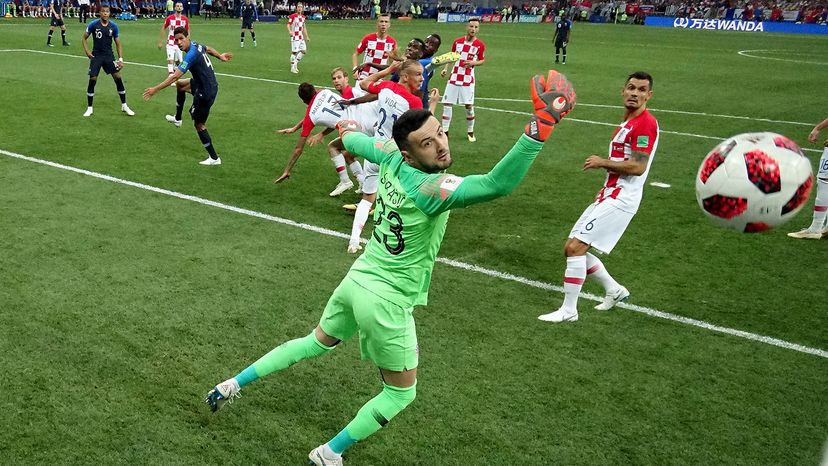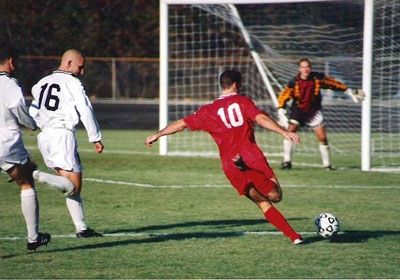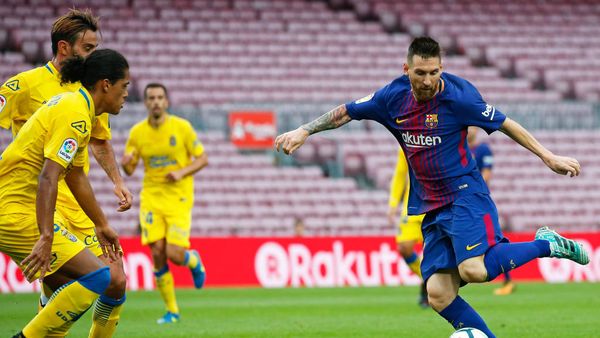That was probably never more evident than in a World Cup showdown on June 15 between Morocco and Iran. The match was scoreless into stoppage time — that extra time officials add onto the end of a match to make up for slow times during regulation play (because, in football/soccer, there are no timeouts during which the clock stops) — when Morocco substitute Aziz Bouhaddouz, swarmed by an Iranian attack, dove almost parallel to the pitch, toward his own goal, trying to clear away a shot.
Instead, Bouhaddouz headed the ball in between the goalpost and his own goalie for the game-winner. Final score: Iran 1, Morocco 0.
It all happened in a split-second. Even the announcers initially credited an Iranian player for the goal. Replays showed that Bouhaddouz, trying to clear it past his own goal to restart play, simply deflected it the wrong way on his dive. Instead of hitting the top left of his head, the ball hit the top right.
Teams will often practice clearing balls away from the net, Longshore says, working especially on proper body positioning. But when game time comes ...
"You look at a defender in these situations, if they're chasing back facing the goal, they don't know what's around them. And they're feeling that pressure of, 'Maybe there's an attacker behind me. I need to try to play this away,'" Longshore explains. "And they put themselves in a bad position and sometimes that deflection can take it in on their own goal rather than clearing it away."
As devastating as an own goal can be — Bouhaddouz was weeping and being consoled by his teammates as he left the pitch — players understand that these things are part of the game. Even the beneficiaries of own goals realize it, as one Iranian showed after the Morocco match in a shining bit of international sportsmanship.
Luckily, most fans can understand that an own goal is simply part of the game. Although statistics on the causes of own goals are impossible to come by — whether a goal is declared as an own goal ultimately depends on the judgment of an official scorer — most own goals seem to be the result of fluke deflections, something unforeseen that happens in a blink, rather than careless, preventable mistakes.
Still, that doesn't make them any easier to accept, either for players or fans.
"The passion for the game is a big part of it, too. This is a game that I think the reactions to it are different than our American sports at times," Longshore says. "It is that 45 minutes, nonstop, of action. Every play kind of builds on itself. It's a frenzy at the end. You can get caught up in the passion and caught up in the emotion of it and maybe not see that hey, it's just a mistake. Hey, it's not even a mistake. It's just a fluke."


